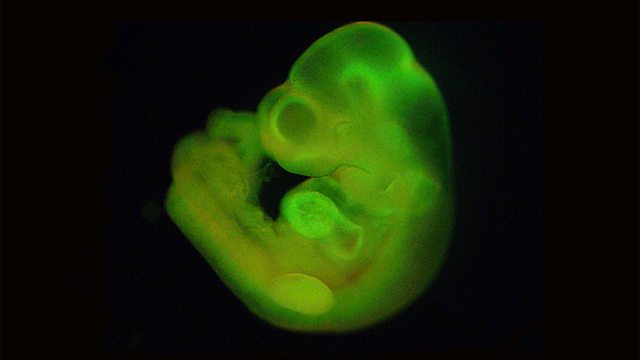
Stem cells; Childhood amnesia; Neanderthal DNA
New STAP stem cells; Examining the onset of childhood amnesia; Our ancient cousin's DNA is still retained in humans.
New STAP stem cells
Japanese scientists have created a new type of stem cell from a mouse skin cell using just a weak acidic solution. Previously, induced pluripotent stem cells (IPSCs) could only be made from so-called adult (not embryonic) cells by means of complex genetic manipulation. The new STAP, or Stimulus-Triggered Acquisition of Pluripotency, cells do not behave in the same way as other stem cells, they only have a limited capacity for self-renewal. But the findings could shed light on different cell states involved in early pre-embryo formation.
Childhood amnesia
For a long time psychologists thought that for the first three or four years of life children simply could not form autobiographical memories. But now new research suggests that it is not that we never form those memories, but that at around the age of seven we forget them. Patricia Bauer is a psychologist at Emory University in the United States and has conducted the first study looking at what children forget, so-called childhood amnesia, and at what ages. Her results have just been published in the journal Memory.
Neanderthal DNA.
Most people of Europeans and Asian descent carry a small percentage of Neanderthal DNA. Two papers this week, published in the journals Science and Nature, have dug deep into the history of this interbreeding to find out exactly what the Neanderthal genes have done for us. David Reich lead the study in Nature, and Josh Achey in Science. They spoke to Adam Rutherford and explained just how much Neanderthal DNA hides in our genes.
(Image: STAP cells generated an entire foetus body. Image credit: Haruko Obokata)
Last on
Chapters
-
Stem cells
A cheap and simple way to make stem cells
Duration: 05:42
Childhood amnesia
A new study examining the onset of childhood amnesia.
Duration: 07:35
Plague
Could bubonic plague strike again?
Duration: 04:59
Shooting in NZ
New technology adds a laser device to rifles to make them safer to use.
Duration: 04:15
Neanderthal DNA
Our ancient cousin's DNA is still retained in humans.
Duration: 09:16
Nitrogen fixation
Efforts to reduce our dependence on the legendary Haber-Bosch process.
Duration: 09:14
Ankhor Wat
LiDAR reveals ancient structures at Angkor Wat
Duration: 08:06
Broadcast
- Sun 2 Feb 2014 14:06GMT大象传媒 World Service Online
Podcast
-
![]()
Unexpected Elements
The news you know, the science you don't

